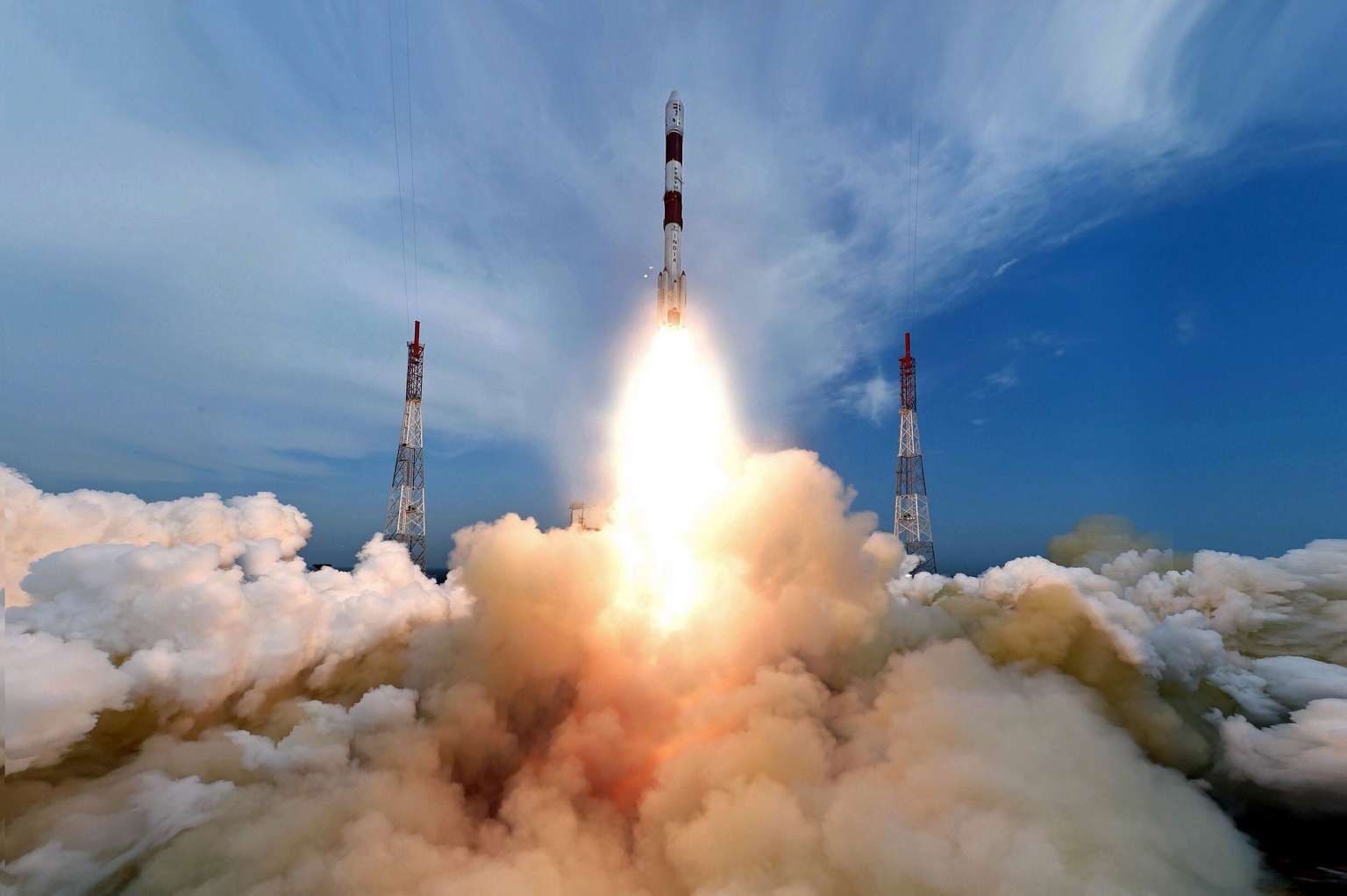India puts 8 satellites into two different orbits in latest space launch
Sign up now: Get insights on Asia's fast-moving developments

A handout photo shows the fully integrated PSLV-C35 taking off from the launch pad at Sriharikota's Satish Dhawan Space Centre in Andhra Pradesh, India on Sept 26, 2016.
PHOTO: EPA/ISRO
Follow topic:
NEW DELHI - The Indian Space Research Organisation (Isro) put eight satellites into two different orbits on Monday (Sept 26) using a single rocket, officials said.
The satellites were launched from the Satish Dhawan Space Centre in Sriharikota, in the southern Indian state of Andhra Pradesh, at 9.12am local time, Xinhua reported.
According to Isro, this was the first mission of India's Polar Satellite Launch Vehicle (PSLV) in which it launched payloads into two different orbits. Such capabilities were recently demonstrated by the European Space Agency's Vega rocket.
"This is a challenging two-in-one mission which puts India in a unique league of nations having the capability to achieve two different orbits in a single mission," Isro Chairman A.S. Kiran Kumar told TV news channel NDTV ahead of the launch.
The satellites were launched into orbit onboard the PSLV, the workhorse of the country's space programme, which was conducting its 37th flight.
While three of the satellites were from India, the rocket was also carrying three from Algeria and one each from the US and Canada.
The indigenously developed SCATSAT-1 satellite, meant for ocean and weather forecasts, cyclone detection and tracking, was placed into a 720km Polar Sun Synchronous Orbit (SSO), while the other seven satellites - including two developed by academic institutions in India - were placed in a 670km polar orbit, officials said, according to Xinhua.
Indian Prime Minister Narendra Modi took to Twitter to share the news of the satellite launch. "Our space scientists keep scripting history. Their innovative zeal has touched the lives of 125 crore (1.25 billion) Indians and made India proud worldwide," Mr Modi wrote on the social media website.
India has over the past five decades built up an indigenous space programme that has become a major competitor in the multi-billion dollar space market due to its low-cost innovation. The country has put hundreds of satellites into orbit at a fraction of the cost of other countries, including a highly successful mission to Mars.

